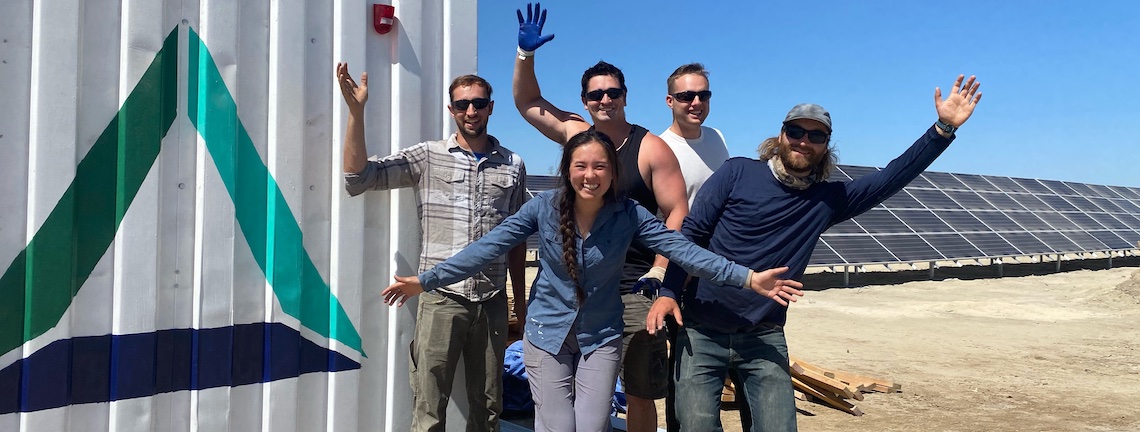
The Nitricity team has reason to celebrate with the news of $20 million in series A funding for the electric-powered fertilizer startup. Nitricity photo
Written by
A San Francisco startup that tested its sustainably made fertilizer in Fresno County farm fields has raised $20 million in series A funding.
Nitrogen fertilizer is conventionally produced using coal or natural gas. Nitricity has electrified the process using solar or wind energy, cutting the use of fossil fuels and resulting greenhouse gas emissions.
Nitricity has a commercial-scale pilot project producing green peppers and fertilizer on site at Don Cameron’s Terranova Ranch in western Fresno County. Another pilot project of processing tomatoes was hosted at the Fresno State farm in collaboration with Fresno State’s Center for Irrigation Technology and the Water, Energy and Technology (WET) Center.
The tests found comparable yield results between conventional fertilizer and Nitricity’s product.
“This fundraising round brings us one step closer toward sustainable and locally produced fertilizer,” stated Nicolas Pinkowski, CEO and co-founder of Nitricity. “It’s time to bring this to market. We have aggressive growth plans in motion.”
With this financing, Nitricity has raised $27 million in total funding to date — which will accelerate its ability to market its “climate-smart” fertilizer as the industry faces supply challenges and price volatility, according to a news release.
Nitricity aims to bring its technology to the market within a two-year period.
“This electrified technology provides fertilizer in a climate-smart nitrate form, designed for efficient application, allowing it to address greenhouse gas emissions beyond ammonia-based technologies,” said Joshua McEnaney, president, CTO and co-founder at Nitricity. “This is an opportunity to attack not just the 1-2% of global GHG emissions in the production, but the additional 5% of GHG emissions in the application by mitigating nitrous oxide formation. We are pushing hard to scale up and implement this solution.”
The pilot projects have used a process called “fertigation” — delivering fertilizer along with water through irrigation lines.
The fundraising round was led by Khosla Ventures and Fine Structure Ventures with additional participation from Energy Impact Partners, Lowercarbon Capital, and MCJ Collective.







